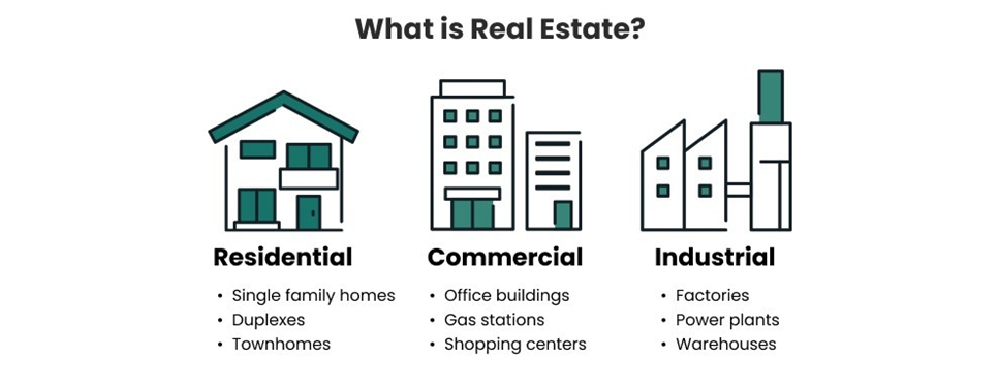If you have actually been working in realty as a financier or looking for to purchase a budget friendly home, then you have most likely came across the term REO. Representing property owned, these type of residential or commercial properties are high-risk for purchasers, but the trade-off is the potential for big benefits in after-repair value.
What about purchasing REO residential or commercial properties makes them dangerous for real estate investors and homebuyers? How do you mitigate that threat? And are the benefits of purchasing REO worth it? Let's dive into REO property and share all you require to understand about these genuine estate listings.
What is REO?

Real estate owned (REO) is a term utilized to describe a residential or commercial property that did not sell at a foreclosure auction that a loan provider or bank now owns.
The previous owners defaulted on their mortgage loan payments, leading to the lending institution acquiring it. But lenders remain in the company of lending cash, not owning residential or commercial properties, so they do not want to hang onto them. They put these residential or commercial properties up for sale listed as bank-owned or REO residential or commercial properties.

Any lending institution or mortgage financier can bring genuine estate-owned residential or commercial properties from standard banks, federal government firms like Freddie Mac and Fannie Mae, and non-traditional lenders.
To get a deal with on REO, we've got to understand how the lender took ownership of the residential or commercial property.
How does foreclosure work-and why did the residential or commercial property stop working to offer?
Foreclosure happens when a house owner can no longer make their mortgage payments. In lieu of foreclosure, the owner can try to re-finance with their loan provider or try a short sale. If they can't find a buyer or work out the right terms with the lender, it carries on in the foreclosure procedure.
The process starts when the property owner falls overdue, generally after they miss out on 3-6 months of mortgage payments.
After months of nonpayment, the lender will send out a need letter offering the customer a particular amount of time-usually 30 days-to bring their payments present or face foreclosure.
Foreclosure is a legal procedure where the lending institution acquires the residential or commercial property and kicks out the property owners. The lender or their representative files a petition with the courts to officially get the foreclosure underway. The procedure can last from a few months to over a year, depending on the state laws where the residential or commercial property is situated.
The residential or commercial property is put up for a foreclosure sale, generally at a public auction. Anyone can bid on the residential or commercial property, including the lender, who positions a "credit quote." Essentially a lien, this bid integrates the quantity of cash owed on the loan, foreclosure costs, and other costs. You may likewise see the term "defined quote," which suggests the lending institution's opening bid is less than what it is owed. A "full debt bid" signals that the house owner has equity in the residential or commercial property.
The residential or commercial property auction can happen online or at a particular area, like the county courthouse or Sheriff's workplace.
The hope is that the residential or commercial property will offer for adequate to cover the impressive mortgage balance. If a third-party bidder, like someone from the public, is the highest at auction, then the sale continues pay back the borrower's financial obligation plus the lending institution's costs of filing a foreclosure.
However, if the home does not cost the quantity owed and the credit quote is the highest, it ends up being an unsuccessful foreclosure auction. Homes in some cases don't cost auction due to the fact that the reverse minimum is viewed as too expensive, or there was no access public gain access to for prospective purchasers to evaluate its real condition.
Now the loan provider takes belongings, and the residential or commercial property is noted as an REO or bank-owned residential or commercial property. The bank can employ a property agent to attempt to offer it through the numerous listing service (MLS) or will note its REO homes in its portfolio or on a website. For an example, see HomePath by Fannie Mae, its REO residential or commercial properties website.

Once the foreclosure is official, and the lending institution acquires the deed, the now former-owner has a certain quantity of time to leave the residential or commercial property.

How do banks deal with REO residential or commercial properties?
Large banks and loan providers in some cases work with REO Specialists whose sole function is to manage their REO listings. These professionals can work out with buyers and function as residential or commercial property managers to ensure the residential or commercial properties stay in good condition while listed for sale.
Still, these fundamental maintenance practices do not generally account for any damage that may have resulted from vacant, overlook, or purposeful actions. For instance, if a pipe sprung a leak and warped the flooring, the Specialist will guarantee the leakage is fixed and avoid more water damage, but the bank isn't going to buy brand-new floor covering.
What they will do is winterize residential or commercial properties, keep lawns cut, and have somebody routinely check that the residential or commercial property has not been vandalized or harmed.
Advantages of buying an REO listing
Purchasing an REO residential or commercial property can have its advantages. They attract investor mostly thanks to the low rates. Because loan providers simply want to offload the residential or commercial property, they're usually going to negotiate more and let it go for under-market worth. Banks and lenders remain in business of making cash. The residential or commercial property is an expenditure for them, and they desire the residential or commercial property off their journals.
Another perk: real estate-owned residential or commercial properties do not have impressive debts due to the fact that the bank pays off any liens that have actually been connected to them. This can produce a smoother transaction since the buyers will not require to fret about covering back residential or commercial property taxes or any other debts owed. When purchasing residential or commercial properties from probate or tax lien sales, there can be unidentified liens or title problems that become the purchaser's responsibility. In this regard, buying bank-owned can be more trouble-free than purchasing an affordable residential or commercial property from a tax foreclosure.
The drawbacks to REO residential or commercial properties
That said, acquiring a foreclosed home includes its own set of obstacles. The entire procedure, from the start of the very first missed out on payment through the loan provider listing it as a bank-owned residential or commercial property, can drag on for months, frequently well over a year.
Who's maintaining the home in that year? In some cases, the prior owners remain in the home till they're officially forced out. Not all of them maintain the residential or commercial property for monetary or individual factors.
Also, because loan providers aren't in the genuine estate service, they're not generally purchased the upkeep of the residential or commercial property. They're offering the residential or commercial property "As-Is," which means no significant repair work or postponed maintenance have actually been done because bank possession. These foreclosed residential or commercial properties frequently feature significant repair work or remodellings, consisting of some financiers weren't expecting.
Finally, while loan providers can offer funding or support with closing costs on an REO residential or commercial property, it's still not constantly simple to protect. The residential or commercial properties typically are not in the very best shape, making them less preferable possessions to lend to. Traditional loan providers have specific requirements to figure out which residential or commercial properties they'll finance, and "As-Is" REO may not suffice.
That leads investors who need funding to buy a realty financial investment to look for alternative options that might have higher rate of interest. Non-traditional loans increase ownership costs.
Finally, the genuine estate-owned residential or commercial properties meaning includes single- and multi-family homes. If you're purchasing a multi-tenant residential or commercial property, you could end up being a landlord overnight.
What to do if you're buying REO
Do your research and due diligence to ensure you understand all the potential risks of buying an REO residential or commercial property.
Use databases to find REO residential or commercial properties. Mortgage lending institutions and federal government institutions like the US Department of Housing and Urban Development (HUD) run websites with their genuine estate-owned residential or commercial properties listed. The multiple listing service (MLS) might indicate if a residential or commercial property is bank-owned.

Make sure you spending plan for repairs or restorations. There are many guidelines of thumb when scheduling funds for repair work. In the case of a bank-owned residential or commercial property that's been uninhabited for a while, it's a good idea to contribute to that repair work cushion. While you can't negotiate repair work with the bank, you can still spend for a home evaluation to better spending plan for restorations and notify your purchase rate.
If you're not paying all money, have the financing in place. Check out alternative funding choices if needed. The loan provider and listing agent wish to see down payment down, evidence of funds, or a lender's pre-approval, just as with any other home sale. They're interested in getting their exceptional loan balance paid back but likewise understand that the longer they hold the home, the more difficult it will be to offer.
Deal with a skilled property agent who recognizes with the REO sale process and can walk you through it. Most lending institutions have REO agents you'll negotiate with and will not take your deal seriously unless you have representation.
Understand that if you're purchasing a multi-tenant home, it may be occupied. The Protecting Tenants at Foreclosure Act outlines the tenants' rights. As the brand-new proprietor, you might be bound to honor the existing lease terms and are needed to give 90 days' notification for any eviction.
Buying real estate-owned residential or commercial properties
Overall, the foreclosure procedure is made complex, and comprehending the term property owned (REO) when it pops up on a listing can help potential buyers determine if it's an excellent option for them or not. Keep in mind that acquiring an REO residential or commercial property might offer reduced prices, however that features its own expense. Be gotten ready for difficulties like comprehensive repair work or acquiring loans to make this purchase.





